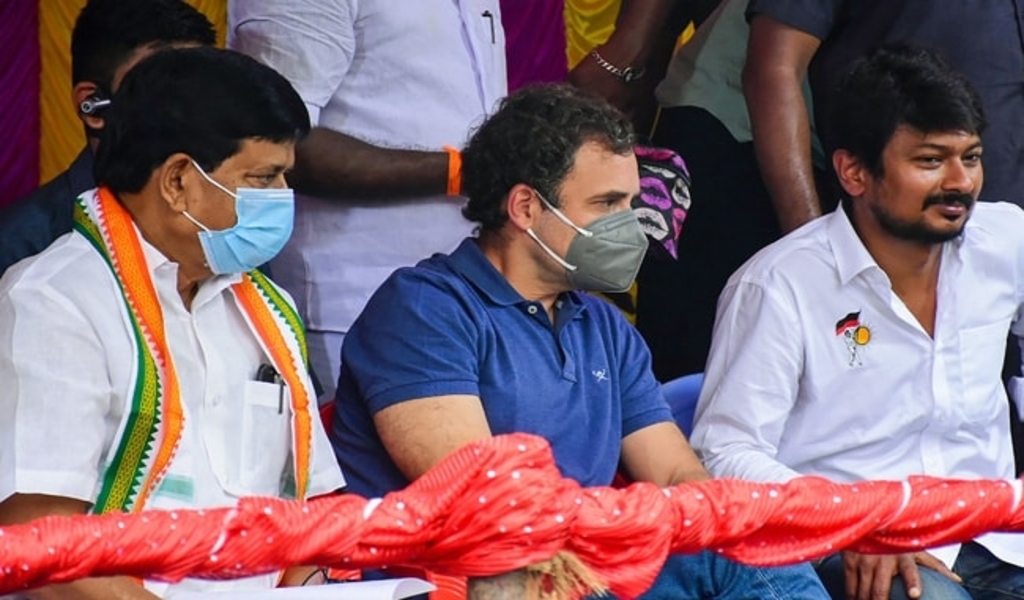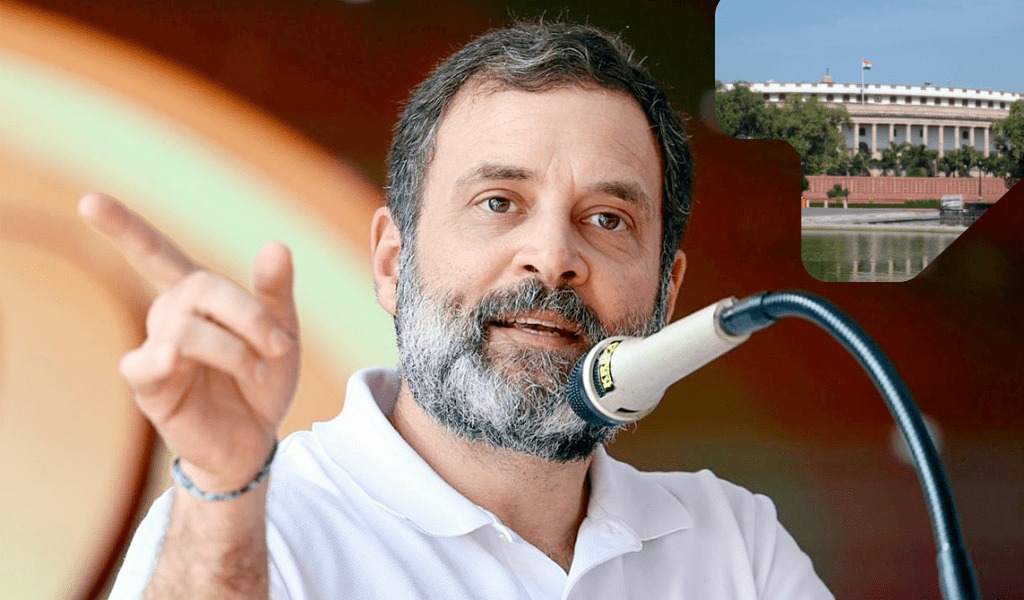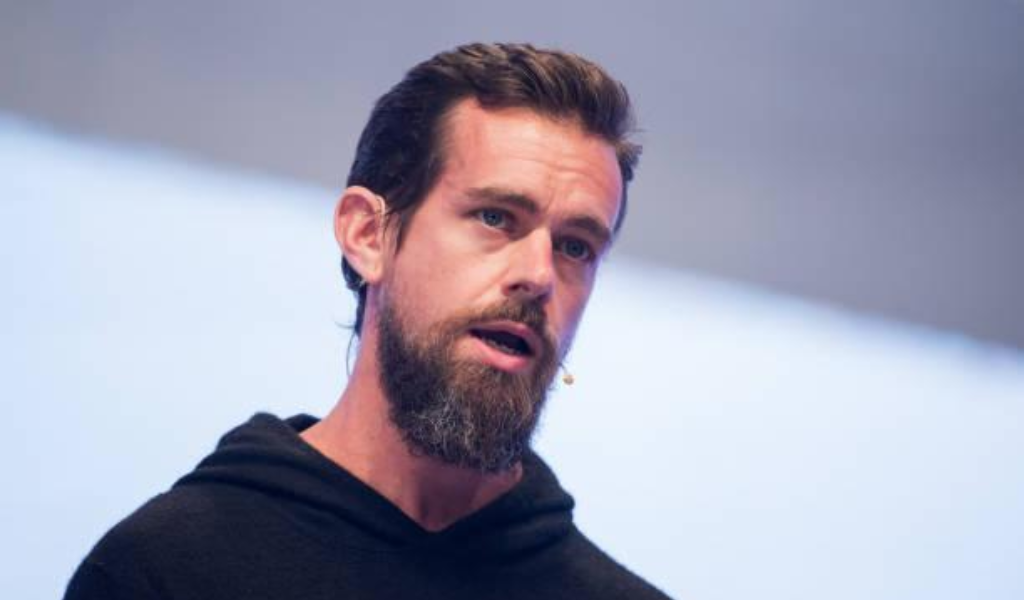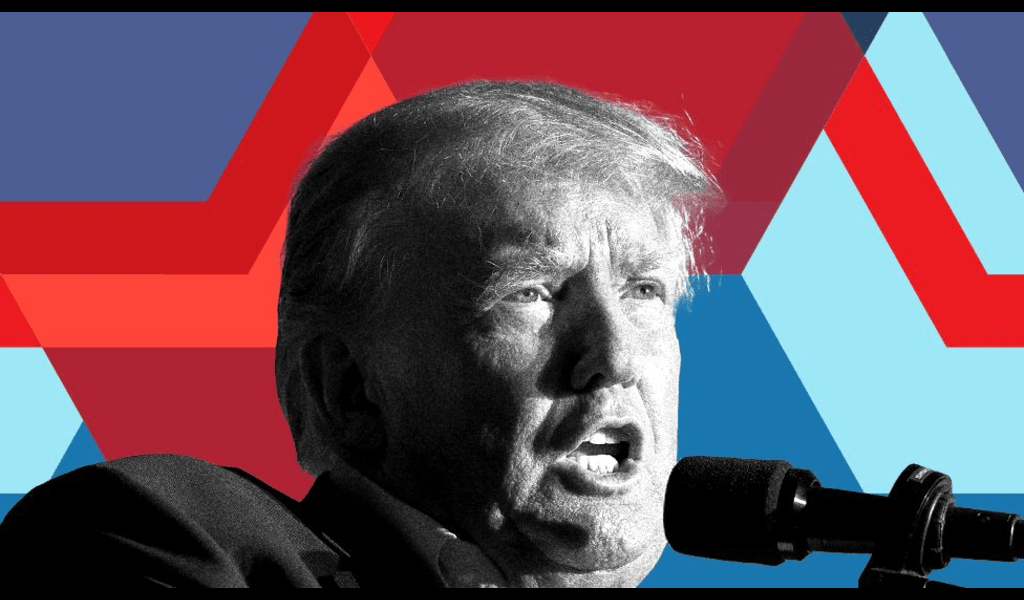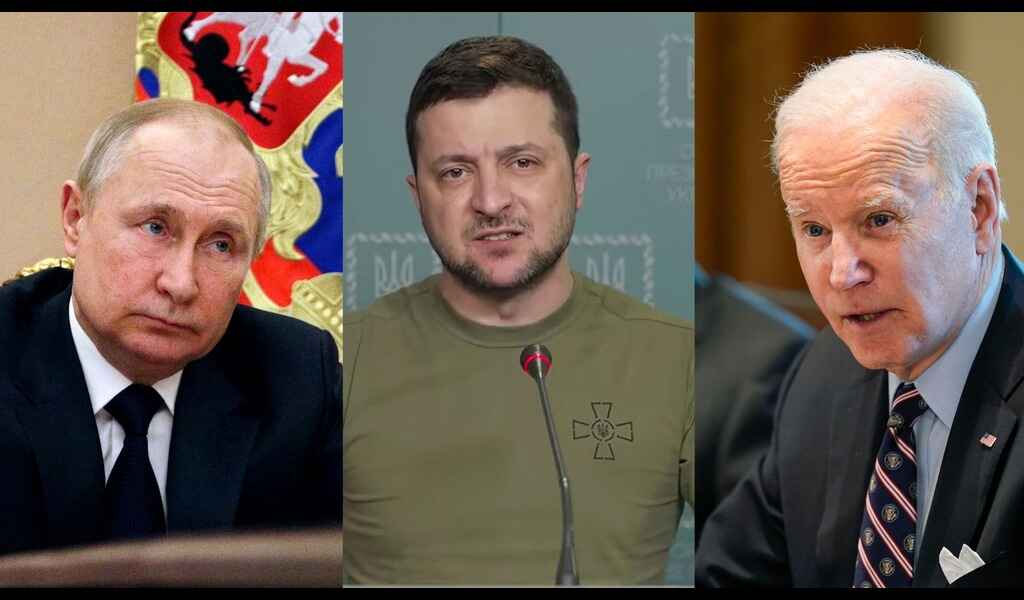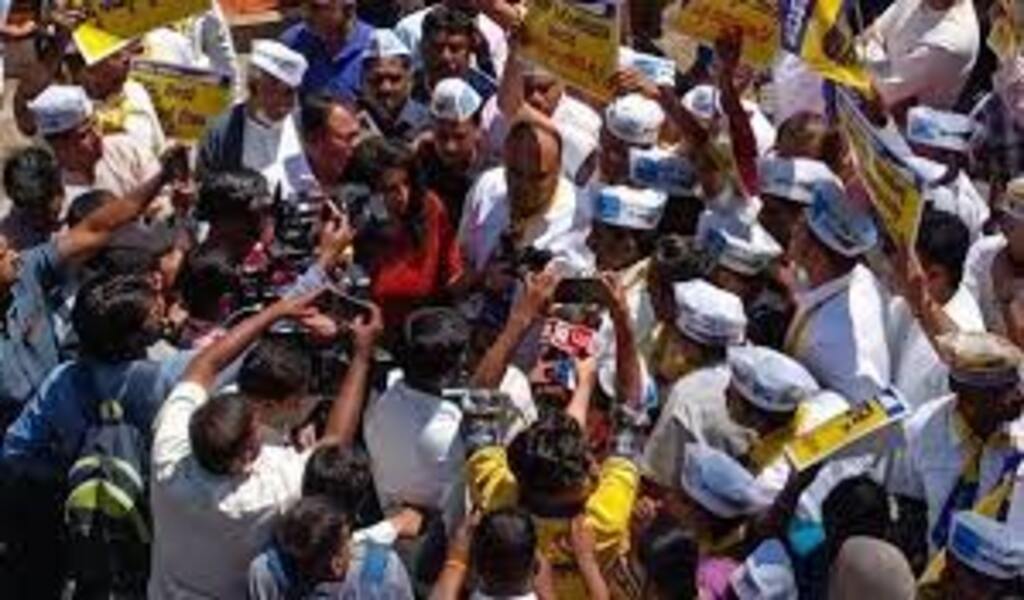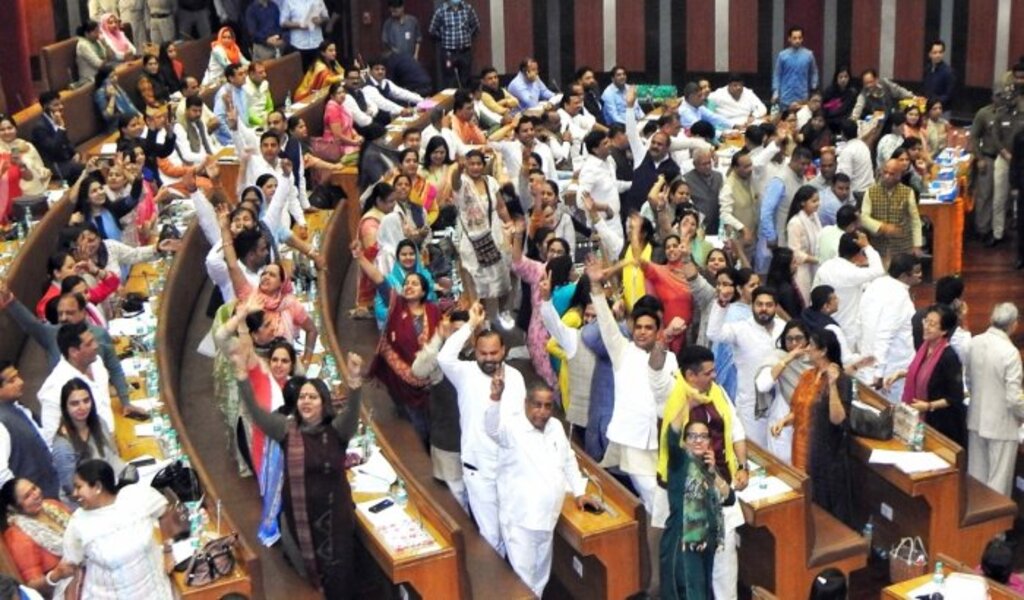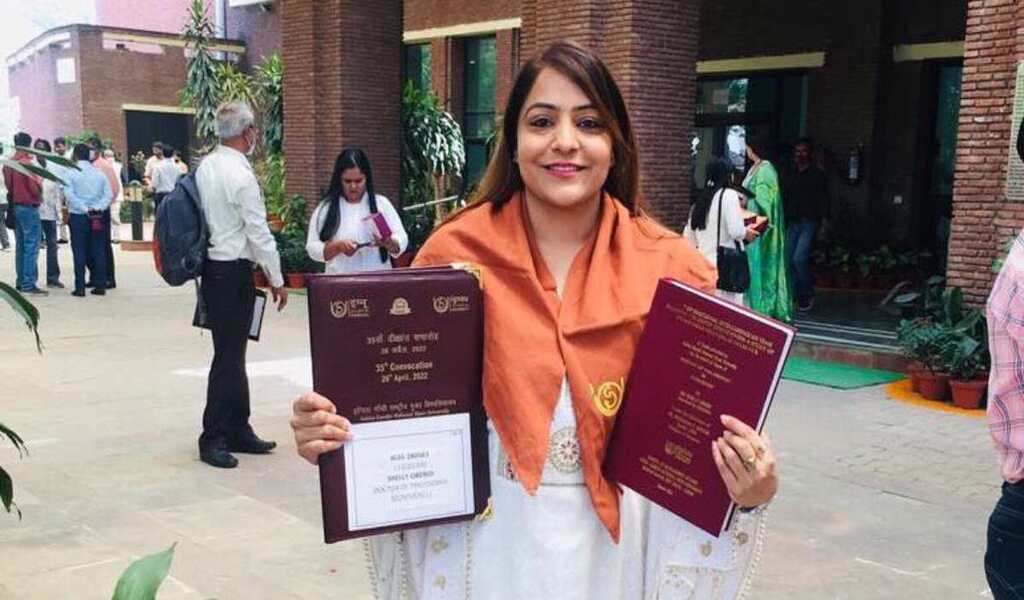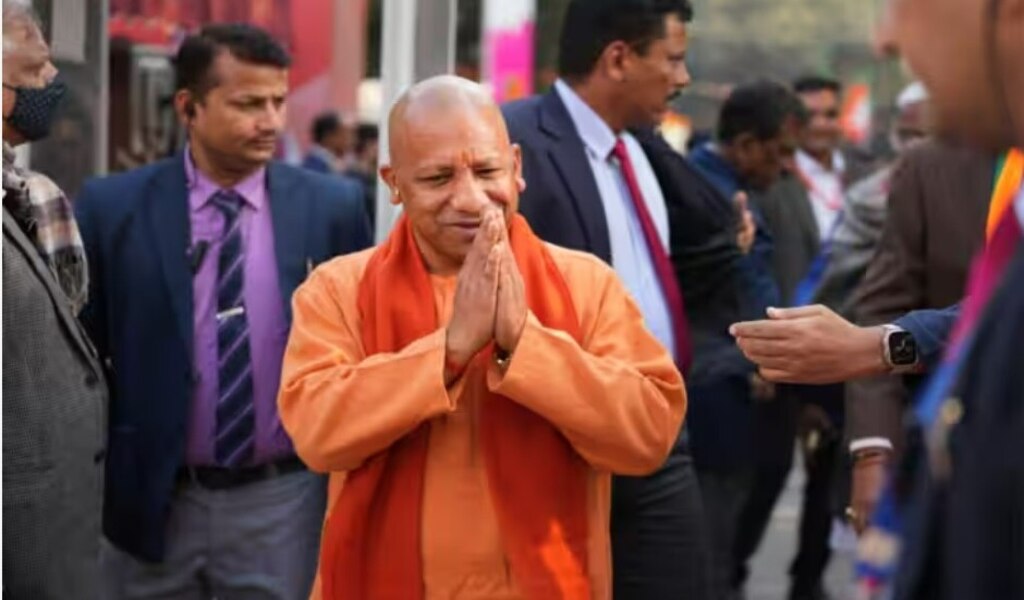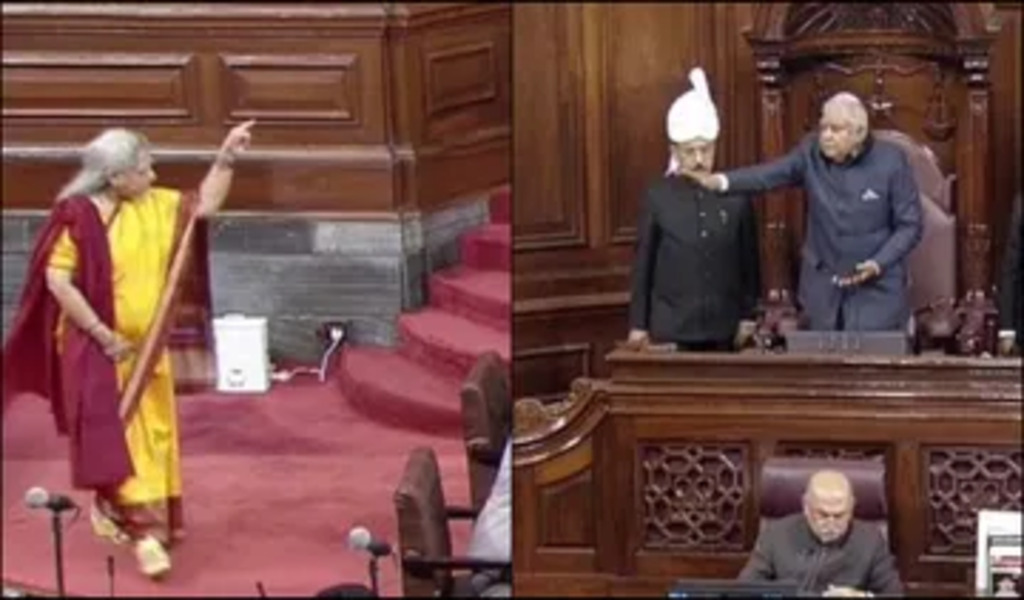#GoBackRahul: Congress Party's hypocricy over Jalikattu
The Congress President Rahul Gandhi may be visitng the state of Tamil Nadu on January 14th on the occasion of Pongal and would be witnessing the famous "jallikattu".
According to media reports, the Lok Sabha MP from Wayanad would visit the state to take part in the harvest festival and witness the traditional jallikattu at Avaniyapuram near Madurai as a way of showing solidarity to the farming community in the light of the recent protests.
However, this comes as a contardiction and also as an irony since the Congress Party has not shown consistency in its support of the controversial sport.
What is Jallikattu?
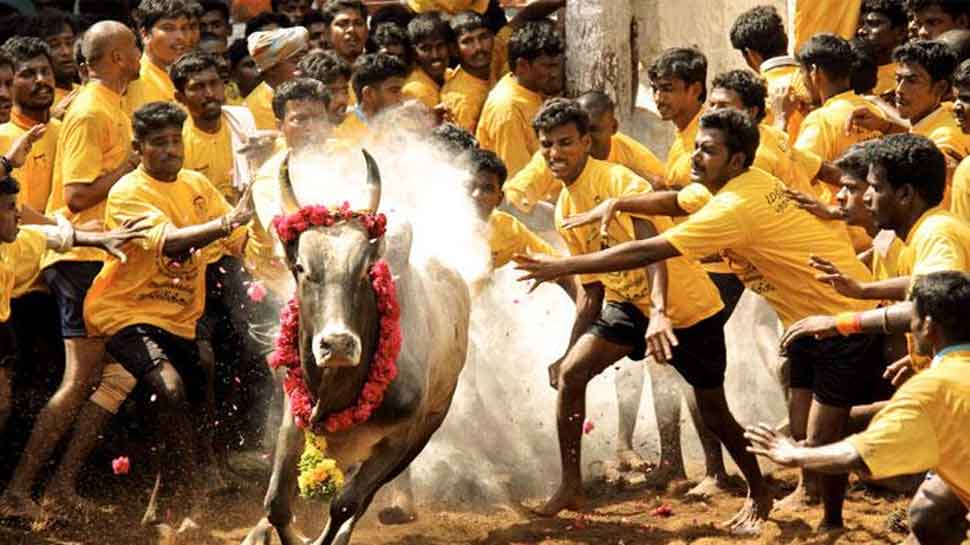
Jallikattu is a disputed traditional event in which a bull is released into a crowd of people, and multiple human participants attempt to grab the large hump on the bull's back with both arms and hang on to it while the bull attempts to escape. Participants hold the hump for as long as possible, attempting to bring the bull to a stop. In some cases, participants must ride long enough to remove flags on the bull's horns. Several injuries to both the animal the man have been reported in the past which has called for condemnation from animal right groups. However, the people of the state protested against the ban and an ordinance was passed in the year 2017 which made the sport legal.
The Congress party had promised to ban the traditional sport in its manifesto of 2016 elections. Even earlier, in the year 2011 the Union minister Jairam Ramesh had banned the use of bulls which was later revoked by the ordinance.
The current government in power has allowed the sport but with specific conditions. The Congress party took a U-turn again and came out in support for the sport citing preservance of cultural heritage as a reason, at the same time one of their members was a part of the counsel which filed a petition against the sport.
The party may have forgotton, but the people certainly didn't. Netizens took to the social media platforms with hashtag #gobackrahul, a day ahead of Rahul Gandhi's visit to the state:
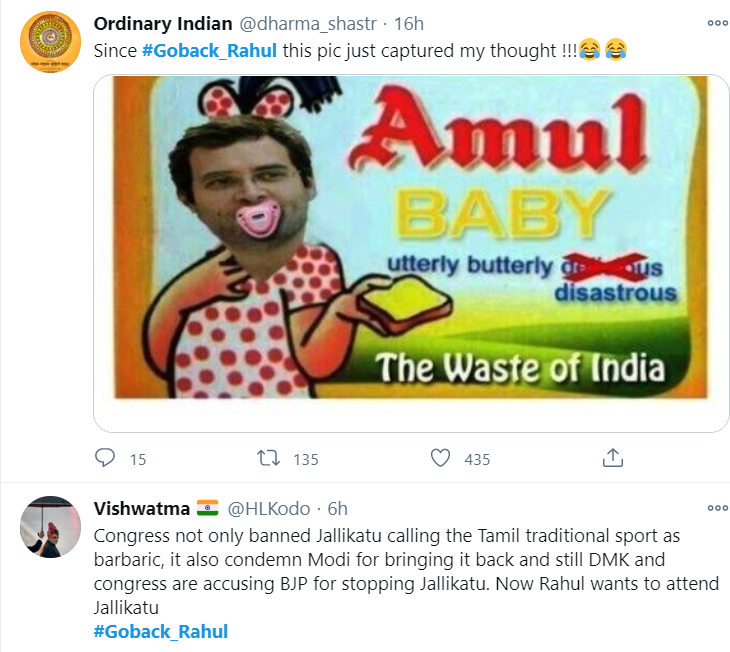
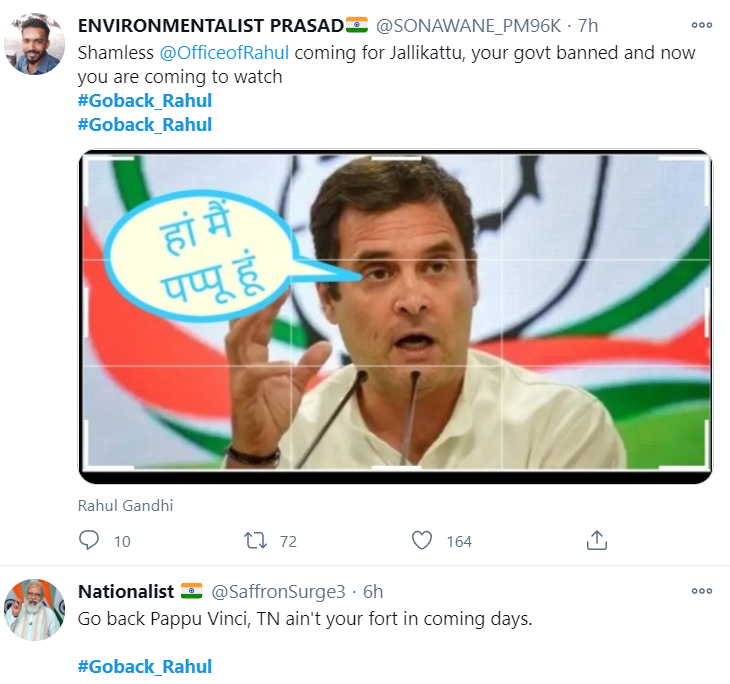
It certainly seems that Rahul Gandhi has a lot to explain.
So should the sport be banned ?
Jallikattu is regarded as probably the oldest sport known to mankind. Unlike the Spanish bull fight, Jallikattu does not involve the use of weapons. Bulls are bred specifically by people of the village for the event. After the event, tamed weak bulls are used for domestic activities and agriculture, meanwhile, the untameable strong bulls are used for breeding the cows.
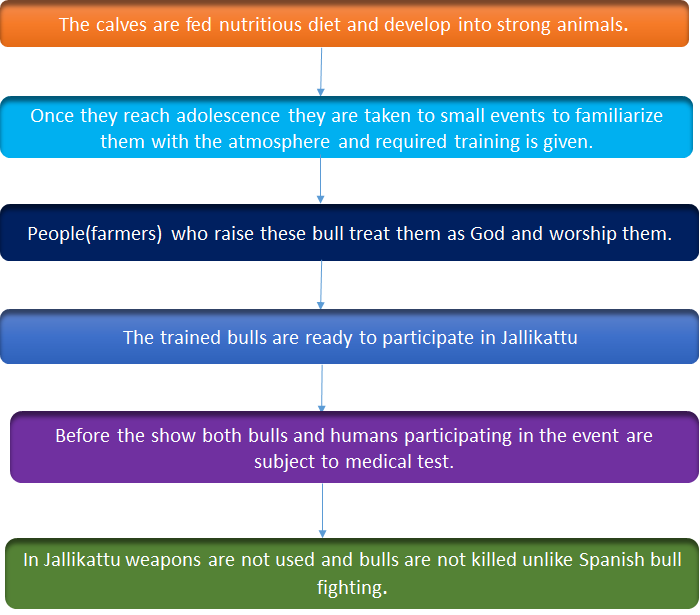
Theories suggest that banning the sport is actually propagated by the multi-national organizations for certain reasons:
⦁ Banning Jallikattu will eventually eradicate our native breed cow which will enable Americans to bring western hybrid cows like Jersey & Friesian
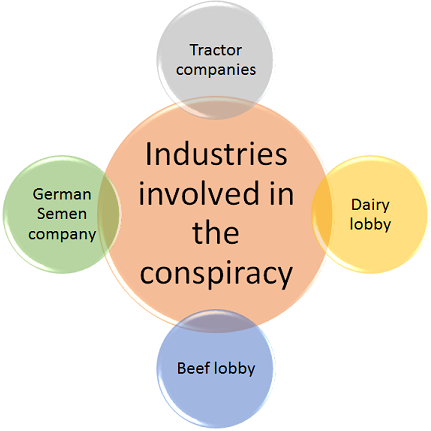
⦁ The tractor companies are keen in eradicating native breed so that farmers will depend on tractors for agricultural work thus increases the tractor companies sales and profit
⦁ The German Semen company wants to target the Indian dairy industry for the introduction of their hybrid semen which produces larger quantities of milk
⦁ When a ban on Jallikattu is in place, the simple supply-demand equation gets skewed and cattle owners would be compelled to sell their animals at cheaper rates to the beef industry which would be profitable for them. To susbtantiate this, there exists a huge demand for Bos Indicus (native to India) variety beef in the Gulf, Malaysia and Western countries
However, the decsion rests entirely upon the state mechanism. For now, the traditional sport is here to stay. To keep reading about interesting trends on the social media platforms, visit checkbrand.online
CATEGORIES
- Digital Marketing
- Marketing
- Entertainment
- Medical
- Science and Technology
- Politics
- Sports
- Environment
- Campaign
- Interview
- Viral
- What's Trending
- Trending News
- Viral Videos
- Youtube Trends
- Social Media Ranking
- Twitter Trends
- Google Trends
- Top Politicians
- Top Cricketers
- Top Influencers
- Best Campaigns
- Google News
- News
-
 Oct 11, 2020
Oct 11, 2020SEO Content Writing Vs. SEO Copywriting:...
-
 Dec 15, 2020
Dec 15, 2020#Karnatakaiphoneplantagitation: Workers...
-
 Dec 15, 2020
Dec 15, 2020#OLA Invests ₹2400 Crores For Our Futur...
-
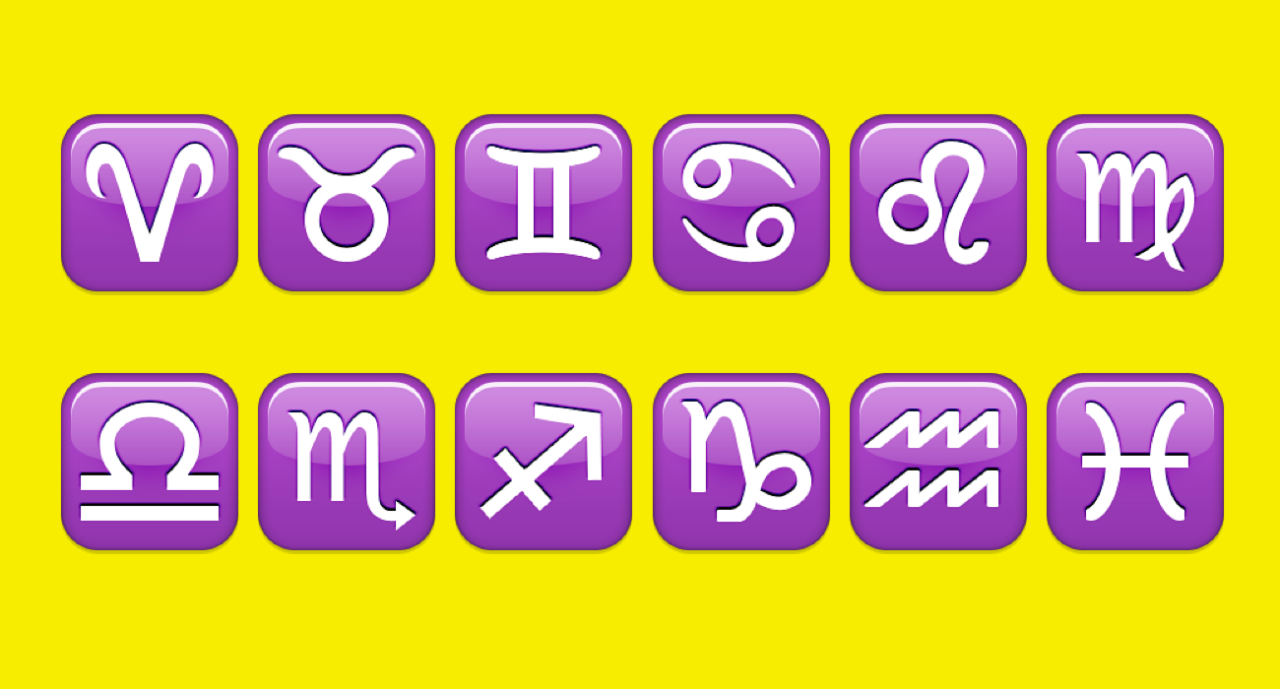 Dec 15, 2020
Dec 15, 2020#Snapchat Launches Astrology Profile
-
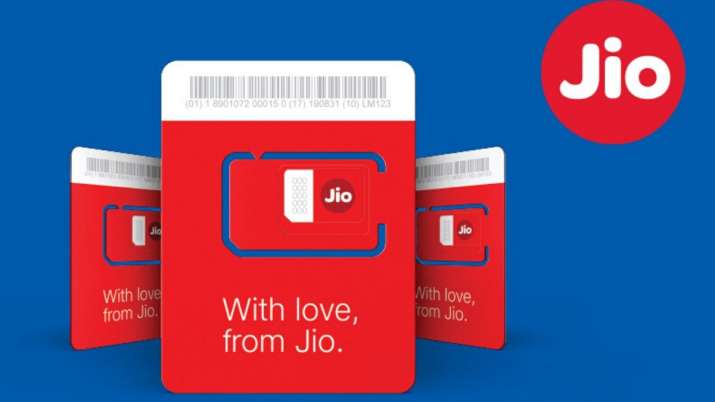 Dec 15, 2020
Dec 15, 2020Know Why #BOYCOTTJIOSIM Is Trending On S...
-
 Aug 01, 2023
Aug 01, 2023India's Chandrayaan-3 On Track For Lunar...
-
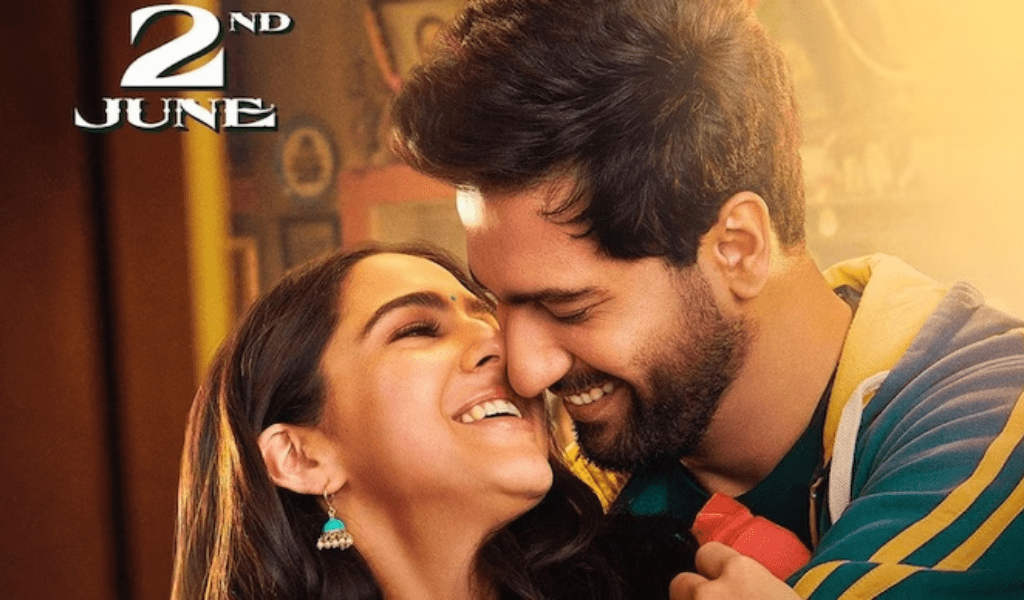 May 17, 2023
May 17, 2023Zara Hatke Zara Bachke Trailer Review(Ra...
-
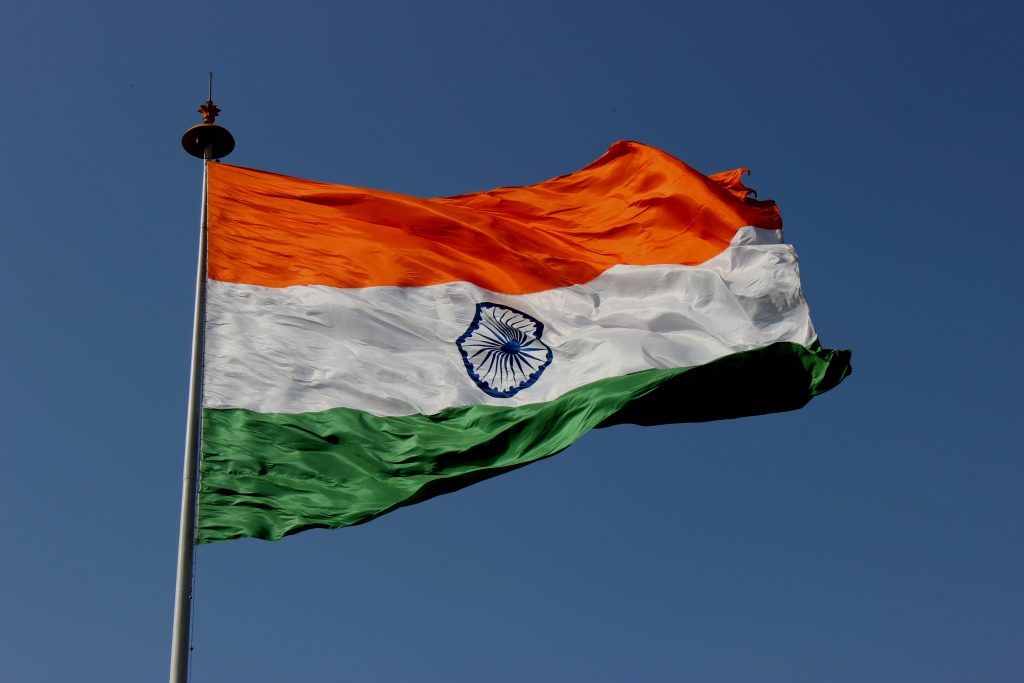 Aug 04, 2022
Aug 04, 2022'Har Ghar Tiranga' Campaign Created Stor...
-
 Dec 16, 2020
Dec 16, 2020#Skillhaitohfuturehai: Mahindra's Flagsh...
-
 Dec 15, 2020
Dec 15, 2020#OLA Invests ₹2400 Crores For Our Futur...
HIGHLIGHTS
- Realme Pad Specifications Teased, Will C...
- MARKETS: Sensex Down 300 Pts, At Days Lo...
- Afghanistan Crisis Live Updates: NIA Chi...
- Women Will Be Admitted To NDA, "Historic...
- Taliban's New Education Minister Says Ph...
- India's T20 World Cup Selection Question...
- New JioFiber Quarterly Broadband Plans I...
- Explained: How Your Cat Got Its Stripes...
- Who Is Aesha Mukherji? All You Need To K...
- Long Live Test Cricket While We've Virat...


